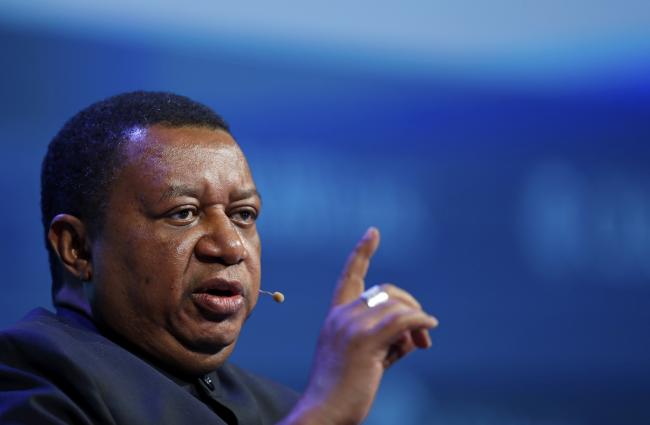(Bloomberg) -- The Saudi- and Russia-led supply limits that have lifted crude to a 2 1/2-year high must be prolonged for an extended period or prices will collapse, said Ed Morse, global head of commodities research at Citigroup Inc (NYSE:C).
Investors already are assuming OPEC and its allied producers will agree at the end of this month to extend the limits well beyond their March expiration, Morse said at a gathering of energy economists in Houston on Monday.
Morse characterized the historic 2016 rapprochement between Saudi Arabia and Russia that helped lead to the output limits as a “bromance,” and said anything short of a decisive step moving forward will disappoint traders and trigger a massive unwinding of long positions in the futures market.
That includes adopting half-measures, such as extending the deal by just a few months or delaying a decision until next year, according to Morse. For traders, “it’s logical to do the extension,” he said. “Otherwise, it’ll trigger a selloff.”
Morse’s remarks came just hours after OPEC Secretary-General Mohammad Barkindo gave assurances in Abu Dhabi that the worldwide oil market is re-balancing at a quickening pace and production cuts are the “only viable option” to restore stability.
The Organization of Petroleum Exporting Countries should decide at its meeting later this month whether or not to extend the cuts, United Arab Emirates Energy Minister Suhail Al Mazrouei said in a speech at a conference in Abu Dhabi. Neighboring Oman backs prolonging the output limits beyond March and sees producers extending them until the end of 2018, Oil Minister Mohammed Hamad Al Rumhy told reporters.
OPEC raised estimates for the amount of crude it will need to pump to meet demand next year by 400,000 barrels a day to 33.4 million a day, according to a monthly report Monday from the group. As that’s about 670,000 a day more than OPEC produced in the third quarter, global inventories would diminish further in 2018 if the group and its allies continue to keep supplies restrained. Stockpiles have declined by more than 180 million barrels this year alone, Barkindo said.
Russia, Saudi Arabia and Iraq have already signaled they would be open to extending the curbs.
Stability ‘Returning’
Brent has gained 11 percent this year and the benchmark grade touched $64.65 a barrel in London on Nov. 7, the highest intraday price since June 2015.
“We are seeing clear indications that the market is re-balancing at an accelerating pace and stability is steadily returning,” Barkindo said. “I am certain that if we had not mobilized ourselves when we did, building consensus and jointly taking action in responding to the crisis, the industry would be in worse condition than it is today.”
The U.A.E.’s Mazrouei affirmed that view, saying that coordinated cuts by OPEC and suppliers outside the group have helped trim crude inventories from record storage levels. The U.A.E., OPEC’s fourth-largest producer, sees no need for the organization to hold an extraordinary meeting in the first quarter of next year, he said.
“I am optimistic about the whole of 2018,” which will be a “recovery year” for oil markets, he said in a speech at the Abu Dhabi conference. U.S. shale output, a contributor to the global glut, has responded more slowly than expected to the recent increase in crude prices, he later told reporters.
Oman, a member of the producer committee monitoring the cuts, added its support to prolonging them until the end of 2018. The largest Arab oil producer outside of OPEC expects crude to stay above $60 a barrel and sees stable prices next year, Al Rumhy said in an interview.
